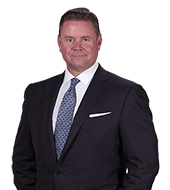The False Claims Act & Health Care: 2019 Recoveries and 2020 Outlook
In 2019, the False Claims Act (“FCA”) remained the federal government’s (“Government”) primary method of civil fraud enforcement. While the more than $3 billion in civil fraud recoveries in Fiscal Year (“FY”) 2019 resulted from Government enforcement across a number of industries, health care continued to represent the most fertile ground for recoveries. Indeed, as in prior years, the lion’s share of the Government’s civil fraud-related recoveries came in health care, which accounted for approximately eighty-five percent (85%) of recoveries in 2019.
These specific recoveries were significantly bolstered during the year by major settlements with hospital systems and pharmaceutical companies, which primarily related to alleged improper relationships with health care practitioners and as a civil outgrowth of efforts to address the nation’s opioid epidemic. Long-term care providers, including hospice, home health, and skilled nursing facilities, continued to prove to be primary targets of governmental scrutiny under the FCA in 2019. Other traditional Government targets — durable medical equipment (“DME”) companies and laboratories — were the focus of substantial criminal enforcement, which involved extensive parallel civil investigations. The Government also demonstrated a continued willingness to pursue FCA actions against individuals, including physicians and executives, as a means of achieving wider deterrence and establishing accountability for alleged corporate misconduct.
This article analyzes FCA activity in 2019 by the numbers, and considers how those numbers might shift in 2020 as a result of emerging trends and governmental priorities in health care fraud enforcement.
To read the full alert, click here.
This publication/newsletter is for informational purposes and does not contain or convey legal advice. The information herein should not be used or relied upon in regard to any particular facts or circumstances without first consulting a lawyer. Any views expressed herein are those of the author(s) and not necessarily those of the law firm's clients.







